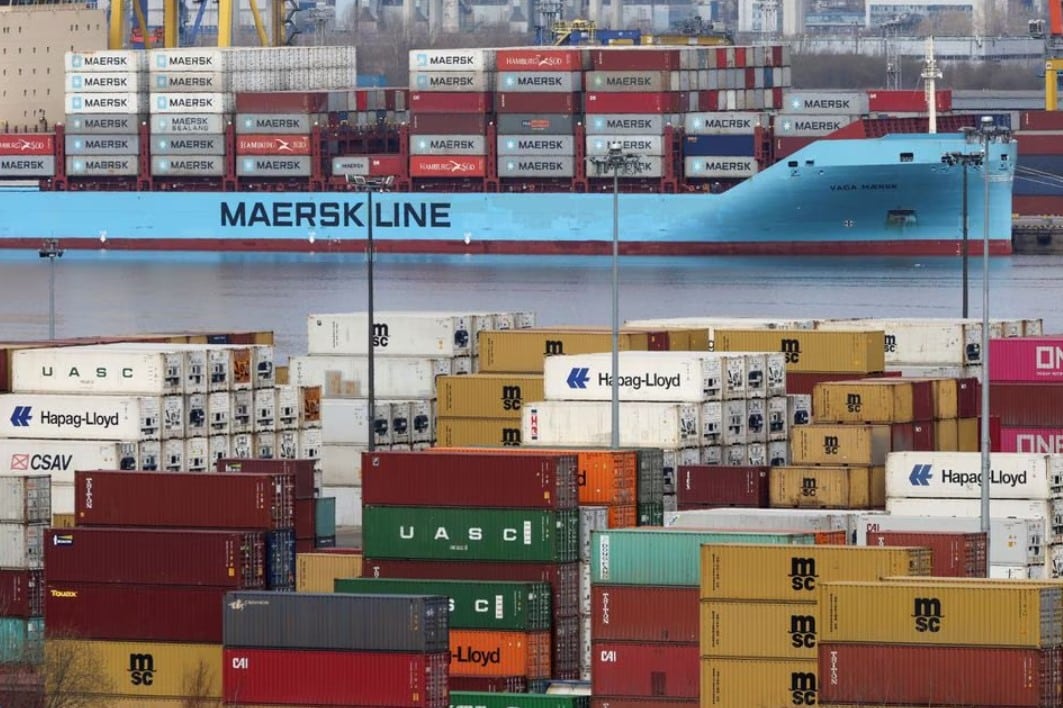The European Union’s extension of its Emissions Trading Scheme (ETS) to shipping has sent ripples across Mediterranean ports, and even Cyprus is feeling the undercurrents.
Starting January 1, 2024, any vessel over 5,000 gross tonnage calling at an EU port is subject to carbon pricing, initially covering 40 per cent of emissions, rising to 70 per cent in 2025 and full coverage by 2026, when methane and nitrous oxide are also included, as mentioned in the European Commission’s ETS FAQ and policy documents, according to Climate Action.
Shipping lines are responding predictably. Re-routing to ports like Tangier Med and Port Said to escape rising costs, saving as much as $100,000 per voyage or over $5 million annually, according to reports from maritime analysts and industry sources discussing shifts in transshipment following ETS implementation.
In the period from 2020 to 2024, ports outside the EU in the Mediterranean added roughly 17 million TEU of transshipment capacity, compared to 8 million in EU member states, and about 80 per cent of new cargo volume went to nonEU hubs.
Major container lines, including Maersk, MSC and CMA CGM, are investing heavily in new terminals at Alexandria, Damietta, Nador and Tangier, according to industry reports and Europewide freight monitoring.
Marsaxlokk in Malta, which handled 96 per cent transit cargo, is particularly exposed.
Commenting on the shifting economics, Isabelle Ryckbost of ESPO observed that when savings are so significant, shipowners are making route changes entirely within legal bounds.
Though Cyprus is not a major container transshipment hub, it is intimately involved in the maritime consequences of these shifts.
Limassol is the island’s principal port, handling general and container cargo and serving as a home base for many shipmanagement firms, many of them EUcontrolled.
In fact, Cyprus maintains the third-largest merchant fleet in the EU by deadweight tonnage (and eleventh in the world), alongside about 20 per cent of the global third-party ship management market, as noted in government and industry coverage of Cyprus’ maritime cluster.
As mentioned in the Cyprus Shipping Deputy Ministry’s publications and Chambers’ reports, the country hosted a virtual debate titled “ETS in Shipping: Elixir or Threat to Sustainability?” on December 7, 2020.
The event was organised by regulators, NGOs, the Cyprus Shipping Chamber (CSC) and the Shipping Deputy Ministry, according to seatrademaritime.com.
Representatives explicitly warned of cargo diversion risks and urged alignment with IMO-level global policy frameworks.
To incentivize decarbonisation, Cyprus offers up to a 30 per cent reduction in tonnage tax for vessels that prove emissions-cutting measures, introduced in 2021, as noted in the chambers’ and Shipping Deputy Ministry’s green incentive programme descriptions.
Meanwhile, maritime operators in Cyprus, such as Acheon Akti Navigation Co., have registered Maritime Operator Holding Accounts (MOHAs) and comply with ETS reporting requirements.
Companies are now facing both ETS surrender obligations and upcoming FuelEU Maritime rules, including reductions in fuel lifecycle GHG intensity starting at 2 per cent in 2025, rising to 80 per cent by 2050, as noted in regulatory compliance guidance and industry news.
Cyprus’ maritime sector contributes roughly €1.2 billion annually, representing around 7 per cent of GDP and supporting some 9,000 onshore jobs, with broader effects across logistics, bunkering, P&I services and shipping finance, according to detailed shipping cluster studies and economic profiles published by RSM and government sources.
This means that even without direct cargo losses, Cyprus stands to lose indirectly. As Mediterranean networks reroute and investment consolidates at nonEU hubs, demand for services rooted in Limassol, from crewing to ship administration, may soften.
Nevertheless, Cyprus has already positioned itself proactively. Aligning taxing incentives, hosting stakeholder engagement, and participating in EU-level calls with Malta, Greece, and Italy for adaptive policy consideration.






Click here to change your cookie preferences